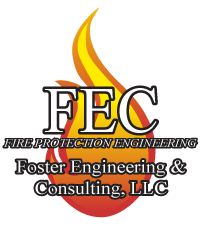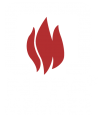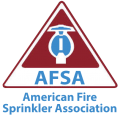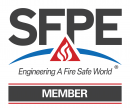The Unified Facilities Criteria (UFC) are design requirements specific for the DOD. UFC 3-600-01, Fire Protection Engineering for Facilities clearly lays out requirements for when and how the FPE is involved. Other requirements can be found in the project specifications. The DOD has standardized specifications that are edited for each project, the Unified Facilities Guide Specifications (UFGS).
This post will focus on QFPE requirements in UFC 3-600-01. The criteria generally recognize two kinds of FPEs, the Designated Fire Protection Engineer (DFPE) and the Qualified Fire Protection Engineer (QFPE).
Most of the time, DFPEs work for the Army Corp of Engineers (USACE), Naval Facilities Engineering Systems Command (NAVFAC), or Air Force Civil Engineer Center (CEC). I know, you are probably tired of all these acronyms, well welcome to federal work. The DFPE most often serves as the Authority Having Jurisdiction (AHJ) and owner’s representative. They may also serve as the designer for in-house design projects, similar to the QFPE.
A QFPE is a registered professional engineer (PE) who has passed NCEES exam in fire protection engineering and has relevant experience. The roles of the QFPE can be divided into two major phases: design and construction. In the design phase, the QFPE can serve as the fire protection designer of record and/or quality control representative for fire protection. Relevant experience with DOD work becomes important here because of the unique requirements in the UFC that those new to DOD work may not be aware of. In the construction phase, the QFPE reviews construction submittals and installation up to final acceptance testing (portions of the UFGS use the term Fire Protection Quality Control Specialist (FPQC).
Great, so when do I need to add a QFPE to the team? QFPEs must be involved on all Major Projects. Per UFC 3-600-01, a major project is:
- An addition to an existing facility
- Work that consists of 50% or more of the total floor area of an existing facility
- Design or construction of a new facility
- Work in an area greater than 5,000 SF that involves fire barriers/fire rated construction, life safety systems, modifying/moving/adding 20 or more sprinklers, fire alarm systems, or fire suppression systems.
- HVAC work involving ducts passing through fire or smoke rated barriers.
The QFPE must be involved in every aspect of design, construction, and testing/commissioning as it relates to fire protection and life safety. Every major project needs a fire protection design analysis and life safety plans. Other responsibilities of the QFPE vary depending on the project, but may include:
- Building code analysis
- Life safety code analysis
- Fire alarm/mass notification system design
- Fire suppression system design
- Water supply analysis, including flow testing (don’t be the engineer that does a single hydrant flow test)
- A multi discipline review of the entire project (egress/emergency lights may be on those electrical plans, the mechanical engineer may have added a fuel-fired boiler at the last minute that requires CO detection)
- Review of submittals for fire protection systems (e.g. suppression, fire alarm, firestopping)
- Construction inspections
- Acceptance testing/commissioning
If you need a fire protection engineer on your next DOD project, FEC has worked on Army, Marine, Navy, and Air Force bases and has extensive knowledge in UFC requirements. We’d love the opportunity to assist you!




